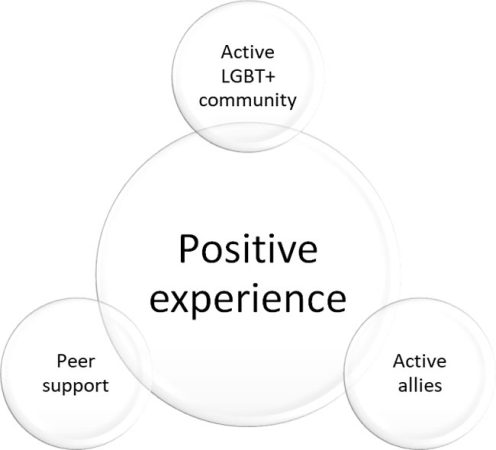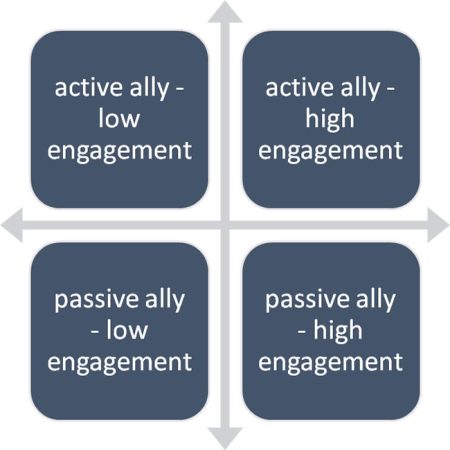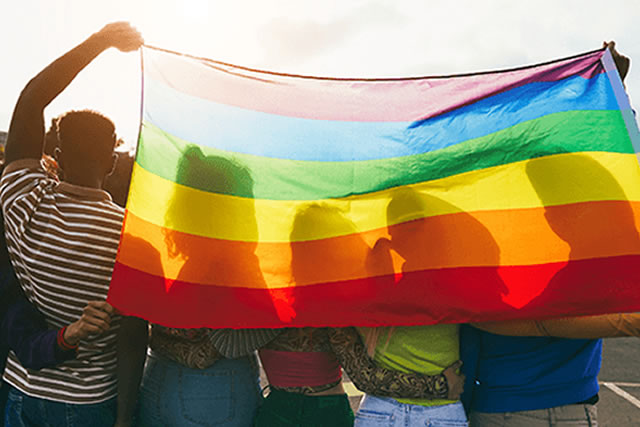Dr Panagiotis Pentaris and colleagues at the University of Greenwich share their thoughts ahead of their breakout session at the Advance HE EDI Conference.
Considering continuously emerging data on systemic and individual oppression faced by LGBTQIA+ self-identified staff in Higher Education, Associate Professor Dr Panagiotis Pentaris and his research team explore the LGBT+ culture in the sector via a case study at the University of Greenwich.
A research report published in 2022 focussing on LGBT+ Culture in Higher Education explores in-depth the LGBT+ HE staff’s lived experiences in a UK Institution. This blog entry signposts to key findings and the report itself, based on the learning from this case study, which we are sharing to provide some suggestions and provocations for the wider sector to consider.
This report presents eleven forms of discrimination, directly signposting problematic structural issues alongside the many unique and intersecting identities presented within the sample. Of the forms of discrimination most prevalent, is microaggression. Derogatory jokes, erasure, othering, and exclusion, expressed through day-to-day comments that leads to oftentimes-hidden anger, anxiety, distress, frustration, isolation, and resentment. Unsurprisingly this makes staff question their sense of security and belonging. Further, oppressive behaviours emanating from the student population link to how open staff can be about their identity. Given the negative dynamics at work, it is not surprising that staff report finding repeatedly outing themselves uncomfortable and that double life strategies are adopted. Reflecting on microaggression in this way, it’s possible to understand how tackling this presents a key aspect of cultural change with the potential to have a far-reaching impact.
Exclusion is also evidenced throughout policies that define the allocation of parental leave and entitlement. Whereas same sex couples are not clearly identified nor provisioned for. Homogenised grouping of identities within policies that use acronyms like LGBT+ are also shown to prioritise certain characteristics, largely excluding nonbinary and intersecting identities from advancing narratives. Routed in institutional positionality, regulation and strategic ambition, the dimensions of institutional policies provide a framework for better understanding their impact on lived experience. Institutional policies are further shown to have the power to raise awareness, discriminate through the choice of language used, to identify and measure
inequalities, empower staff, and progress agendas. Understanding how these outcomes are interspersed across document functions is key.
Overall, aspects of LGBT+ confidence at work coincides with 1) the presence of visible role models, 2) knowing how to report discrimination and 3) being aware of associated policies. Another paradox arises here, where early career staff are also those reported most unlikely to challenge discrimination. Situational power dynamics understandably play into this. It is observed that largely experience with line managers is positive. Although the diversity of other terms used to describe these working relationships are less encouraging: by-standing, inattentive, reactive, toxic, and unequipped.
The key drivers of positive experience for LGBT+ staff triangulates, connecting aspects of peer support. These aspects include personal relationships, an active LGBT+ staff network, and active allies.

Important to observe here that allyship is identified as both an internal feature of the LGBT+ community, as well as for staff identifying as heteronormative and gender confirming.
Another key area this report examines is that of allyship, which presents a vital area, with the potential to significantly improve the experience of LGBT+ staff. It is interesting to note that HEIs assume their staff to be allies by default. However, scepticism exists in relation to true motivation with some considered performative rather than driven by personal integrity. Power dynamics are evident again in terms of allyship. Interrelationships here connect senior staff with advanced careers, with the likelihood of providing direct allyship and finding the experience rewarding. Participants attest that allyship is an ongoing process, part of an ever-evolving identity. Presented as a spectrum, ally status directly links to engagement. Status ranges, passive–active and engagement, high–low.

Positions that twofold denote personal preference for introverted–extroverted forms of engagement and proximal development towards enhanced allyship. A robust framework of good allyship offers principles that can be applied via self-reflection or signposted through training. Interlinking aspects of allyship are identified as, an individual who is caring and supportive, non-judgmental, willing to learn, listens and seeks-to-understand, is upstanding, creates safe spaces, advocates, educates others, is accountable and easily identified as an ally.
Lastly, greater confidence is attributed to new leaders, bolstered by successive strategies and initiatives. However, experience, representation, and collegiate practice, varies greatly across faculties and directorates – where demographics also vary greatly. This report tells a story of progress towards becoming a LGBT+ positive organisation. Yet, it recognises areas that continue to require our attention, particularly the need for appreciating intersected identities and thus experiences in an attempt to avoid homogenising the LGBT+ population in HE.
Read the University of Greenwich team’s report. For more information about the report and the data, please contact the PI, Dr Panagiotis Pentaris.
About the authors: Dr Panagiotis Pentaris is an Associate Professor of Social Work and Thanatology and the Head of Research and PGR Studies in the Department of Social, Therapeutic and Community Studies at Goldsmiths, University of London. Alan Dudley is an early career researcher and project officer, and a Co-chair of the University of Greenwich’s Disabled Staff Community. Dr David Hockham is a Senior Lecturer in Theatre and Scenography at the University of Greenwich. Dr David Evans is Professor in Sexualities and Genders: Health and Well-being in the School of Health Sciences. Carmen Yau is a Lecturer in Social Work at the University of Greenwich. She is a PhD candidate at the Department of Applied Social Sciences of the Hong Kong Polytechnic University.
This article has been kindly repurposed from Advance HE and you can read the original here.
